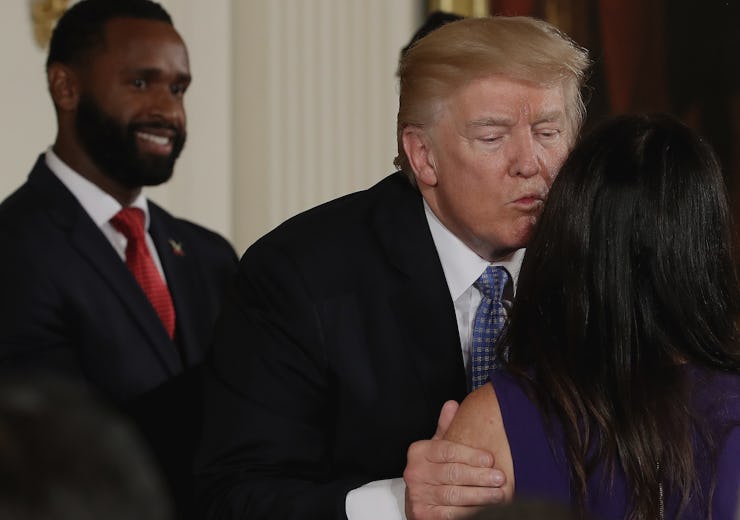Millennials Far Less Likely to Cheat Than Our Horny Parents
Previous generations had a problem sticking to monogamy, and they're still cheating at a higher rate today.

In 1998, news that President Bill Clinton had been cheating on First Lady Hillary Clinton shocked the world. Americans were glued to their televisions, and we gleefully threw White House intern Monica Lewinsky under the bus for being the “other woman” in the most high-profile case of marital infidelity in contemporary history.
Now, President Donald Trump has not only cheated on multiple partners, but he’s bragged about it quite a bit. The knowledge that a sexually unfaithful can be elected to the highest office in the nation doesn’t really stun Americans anymore; in fact, just twenty years after the mainstream media flooded the zone with quotes about Clinton putting a cigar in Lewinsky’s vagina, quotes of similar indecency from Trump barely made a dent in his rapid rise to the presidency. So where are we with infidelity?
A July study from the Institute for Family Studies says that older generations were historically much more likely to cheat on their partners than millennials. In fact, their rate of extra-marital flings has only increased in recent years, and millennials have reportedly been more committed in monogamous relationships over the past two years. When put in a graph, the data is pretty damning for America’s old, horny farts.
Generational cheating rates from 1990-2020
Interestingly, the data also shows that 3 out of 4 people across generations maintain that having sex with someone who is not your spouse is always wrong, so we’re not looking at a difference in judgment, just a difference in self-control. As IFS points out, behavior that doesn’t match up with our morals is “a classic story in the social sciences”.
It’s also worth pointing out that millennials are the generation most hesitant to commit to monogamous marriages in the first place. Part of that hesitation may be, according to this data, rooted in the fact that millennials are the most vehemently against cheating.
The data also paints a pretty damning picture of people currently in their 50s and 60s, who are leading the cheating-on-your-spouse charge. Notably, once people reach their 70s, they’re much less likely to cheat - perhaps because their options are dying off, and perhaps because everything just takes more energy when you’re elderly, including O.P.P.
Look at these perverts! They can barely keep it into their pants!
The IFS attributes the high rate in screwing around in older people to behaviors they witnessed when growing up. “These are the first generations to come of age during the sexual revolution,” the study reports, “so it’s understandable they are more likely to have sex with someone without their spouses. They may have firsthand experience with 1970s-era experiments with nonmonogamy. A few people born in the late 1950s may have had swingers for parents, leading offspring to question taboos surrounding infidelity.” Millennials, on the other hand, were brought up in large numbers by divorced parents, so the same logic could be applied to young adults, explaining their hesitance to cheat.
The study ends by discussing the rise in destigmatized, ethical non-monogamy, and its projects that a new attitude toward monogamy may be on the horizon: one that doesn’t condone cheating and lying, but one that sees the rules of committed relationships as flexible, provided both partners communicate honestly with each other. Even if many Americans aren’t currently engaged in non-monogamous, but emotionally committed relationships, they are certainly becoming more interested in the idea.
We're also writing more and more about polyamory.
See also: Meet the Woman Who (Literally) Wrote the Book on Ethical Non-Monogamy